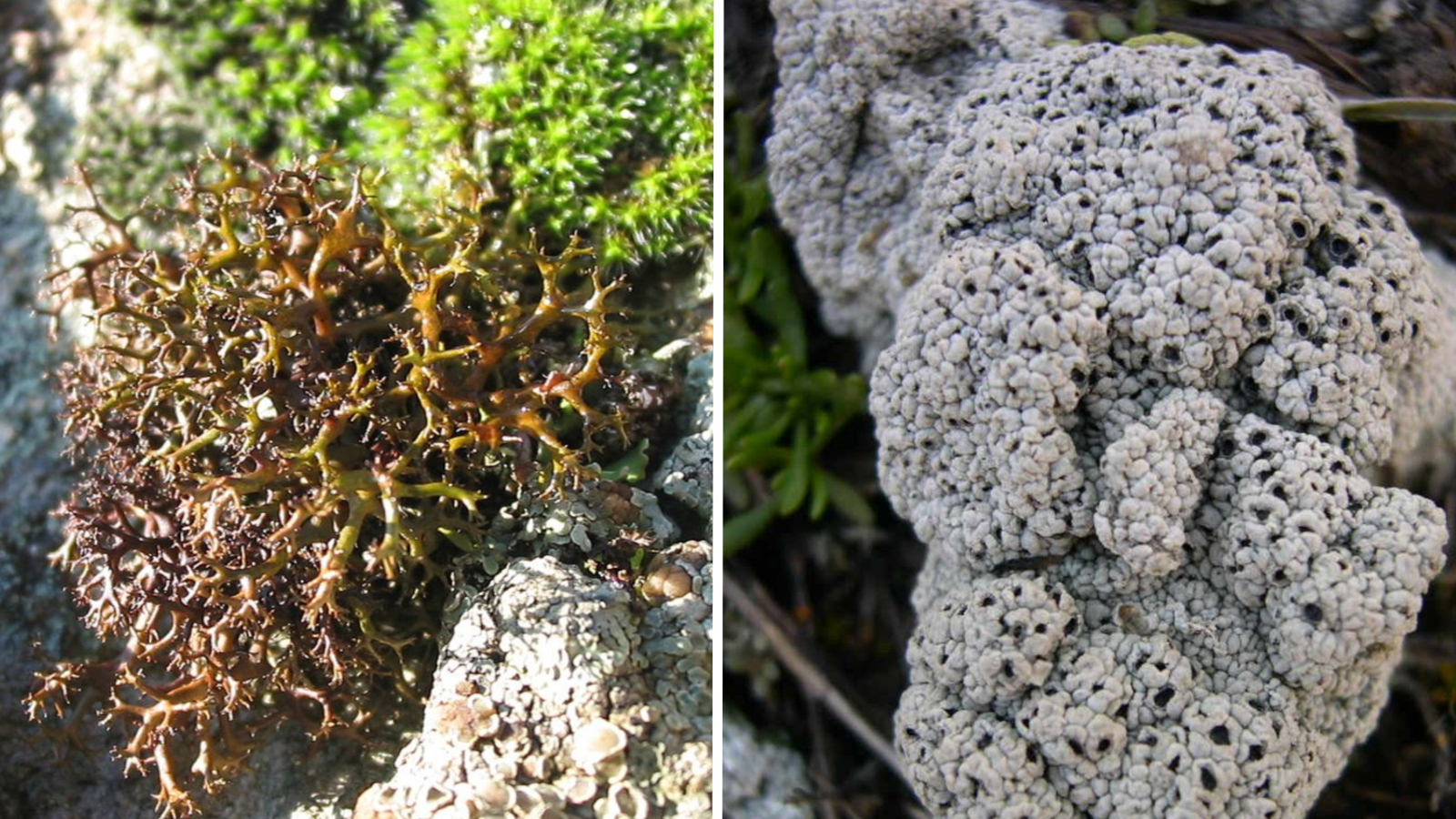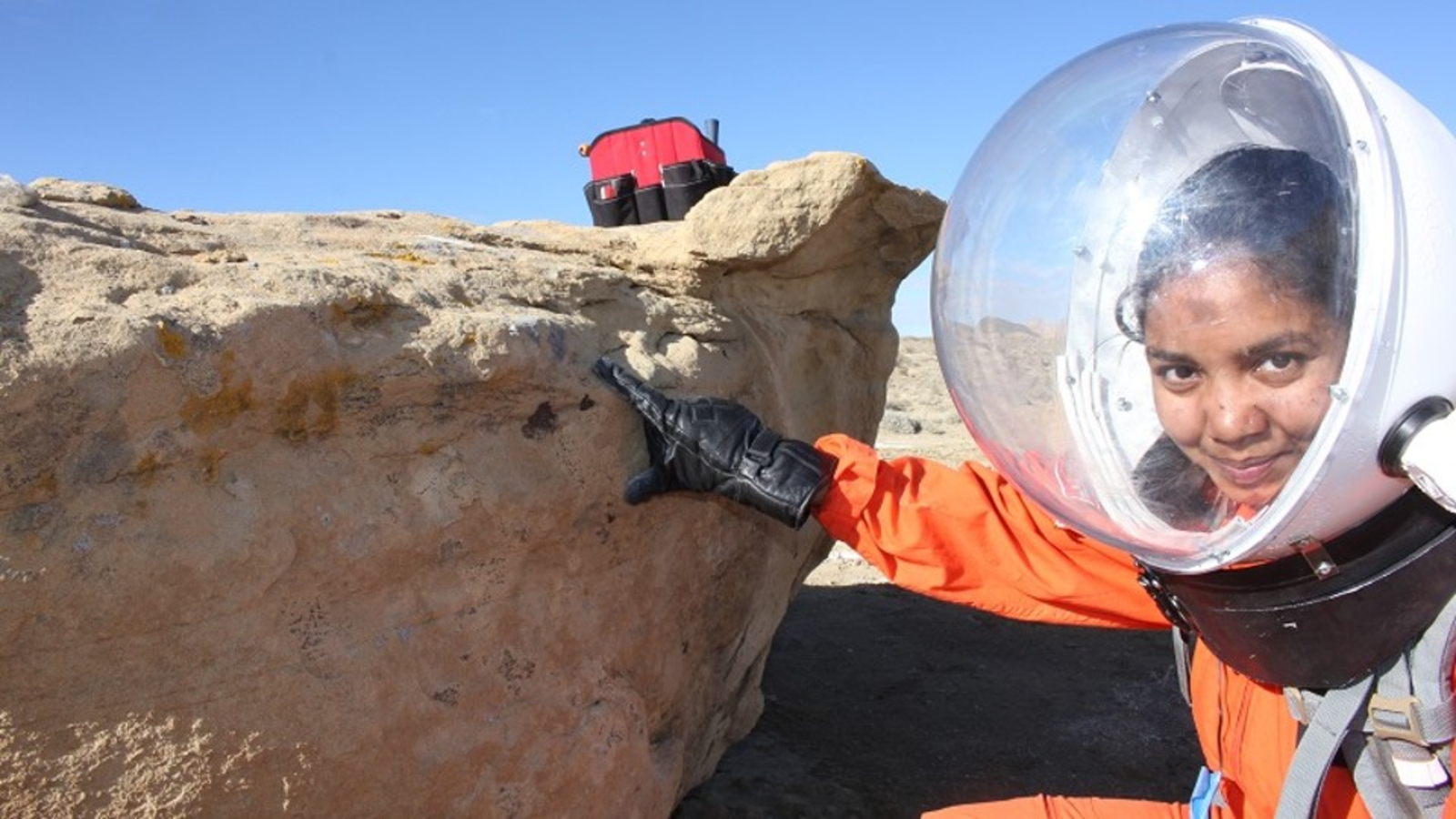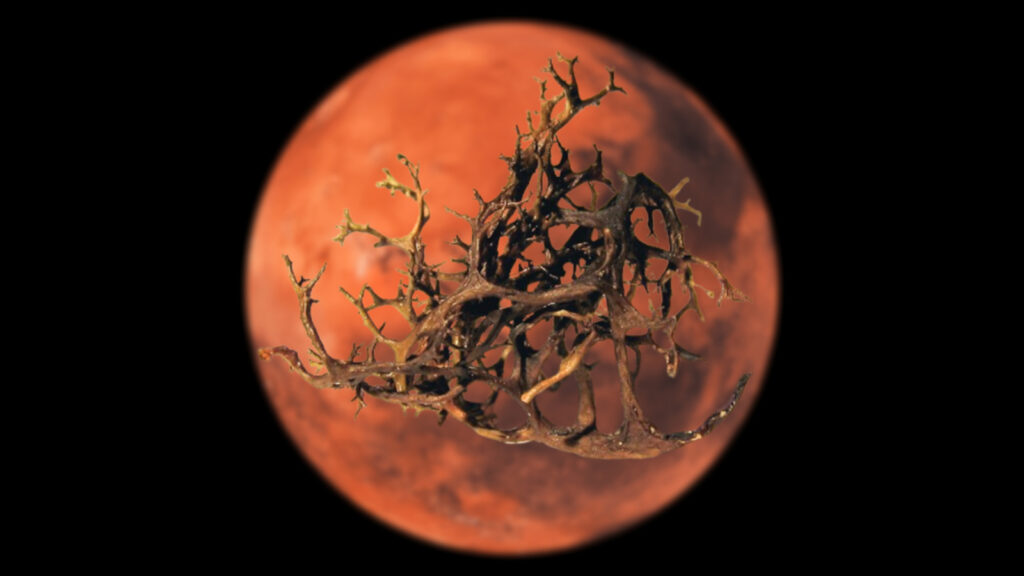Earth-based lifeforms known as lichens may be tough enough to survive on Mars, a new study suggests.
Scientists came to this conclusion after blasting the lichens with a year’s worth of Martian radiation in less than a day during a lab experiment — and the terrestrial lifeforms survived the process.
Mars is not an easy place to live. The Red Planet is essentially one giant desert with a minimal atmosphere, low temperatures and no liquid water at its surface. But the biggest barrier to life on Mars is the lack of a strong magnetic field, which protects against the constant bombardment of ionizing radiation from cosmic rays and solar flares, which can damage living cells and mutate their DNA.
One group of living things that may be able to survive these extreme conditions is lichens, symbiotic associations between fungi and photosynthetic bacteria and/or algae. These hybrid lifeforms, which are not considered true organisms but are listed as species on the three of life, work together to stay alive and many are extremophiles, capable of tolerating no hydration and extreme temperatures for long periods. Some species have even survived being directly exposed to the vacuum of space.
In the new study, published March 31 in the journal IMA Fungus, researchers tested how two lichen species — Diploschistes muscorum and Cetraria aculeata — reacted to ionizing radiation under Martian conditions. To do this, the team placed the lifeforms in a specialized vacuum chamber at the Space Research Centre of the Polish Academy of Sciences in Warsaw, which replicated the atmospheric pressure, temperatures and composition on the Red Planet. They bombarded the lichens with a year’s worth of Martian radiation in just 5 hours. Both species were able to remain metabolically active throughout the tests.
Related: Which animals will be the first to live on the moon and Mars?

“These findings expand our understanding of biological processes under simulated Martian conditions and reveal how hydrated organisms respond to ionizing radiation,” Kaja Skubała, a researcher at the Institute of Botany at the Jagellonian University in Krakow, Poland, said in a statement. “Ultimately, this research deepens our knowledge of lichen adaptation and their potential for colonizing extraterrestrial environments.”
Of the two species, D. muscorum showed the greatest resistance to the radiation, sustaining less damage to its cells, which suggests that some lichens will be better suited to Martian conditions than others. However, it is unlikely that any species would be able to survive on Mars unattended for long periods, as there is no known liquid water at the surface, which all of Earth’s lifeforms need to survive.
This is the reason why it is unlikely that there is any extraterrestrial life currently alive on Mars.
Martian candidates
According to the researchers, the new experiments show that lichens are prime candidates for being taken on future Mars missions, although there are several resilient species other than D. muscorum that could also make the trip.
But lichens are not the only lifeforms that could potentially survive on the Red Planet.

One extremophile group that has long been considered as future Martian tourists is tardigrades. These microscopic critters are nearly indestructible and can survive extreme temperatures, crushing pressures, total dehydration and the vacuum of space, largely thanks to an ability to switch off their metabolism and enter a state of suspended animation.
Other candidates include mosses — plants with similar abilities to lichens. Some desert moss species have even been shown to be resilient to gamma rays and liquid nitrogen, hinting that they too could fare well on Mars.
Single-celled microorganisms, such as bacteria, might also be able to survive on Mars if they were sheltered from radiation, living underground. Research has shown that these microbes could also survive for hundreds of millions of years beneath the surface in a hibernation-like state.
However, the first terrestrial lifeforms to touch down on Mars will likely be a species that is naturally very poorly suited to living on Mars — humans. NASA intends on launching the first crewed mission to the Red Planet sometime in the 2030s, when they will get a taste of how tough it is to survive there.
Editor’s note: This article was originally published April 8, 2025
